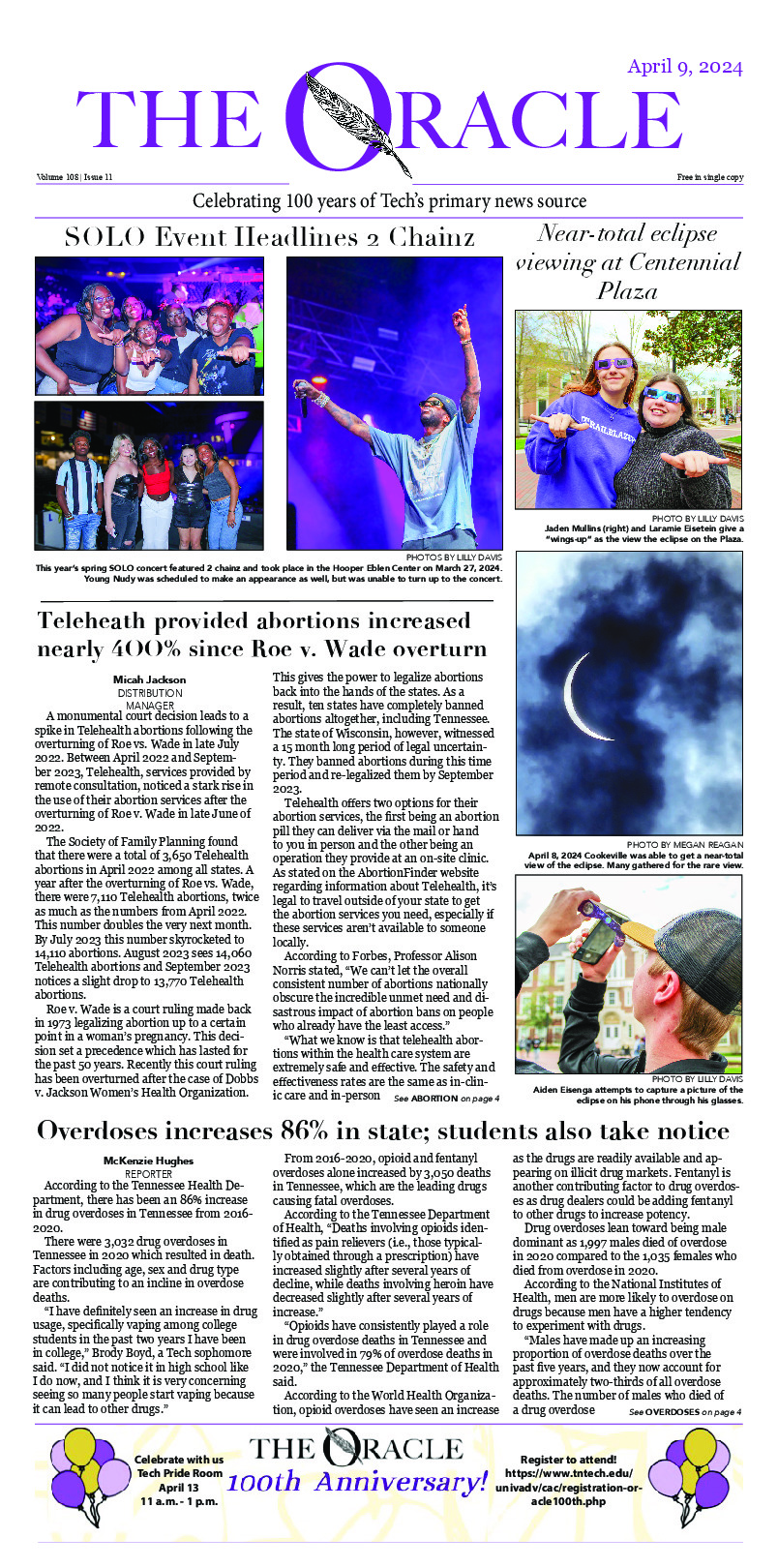Tech was awarded $278,466 for the Garrett Lee Smith grant for suicide prevention funded by Substance Abuse and Mental Health Services Administration (SAMHSA). The grant lasts for three years and supports suicide prevention work in Campus, State, and Tribal communities.
With the assistance of the Office of Research, Christina Mick, assistant director of the Counseling Center, purposed the grant to fund the #hopestrongeagles suicide prevention program.
The grant will allow Tech to provide many new resources to faculty, staff and students.
Tech will have its own suicide prevention hotline, give lethal means reduction education, and increase Tech Counseling Center staff training in suicide prevention.
The grant will also help the Counseling Center reduce stigma and discrimination on social media by use of the hashtag, and reach out to veterans, LGBTQ, and freshman to increase awareness and education.
“There are a lot of students using the Counseling Center,” said Mick. “We’re pretty booked up, and Tech students have been a great resource for breaking a stigma and that it is OK to seek help.”
Question Persuade Refer is a tool to help give those who are suicidal the resources they need, said Mick. Since 2012, more than 1,000 faculty, students and staff have been trained in this technique.
The questioning step involves taking every threat seriously, no matter how small it may seem. Persuading involves listening to the person who is having the problem and offering them hope for their situation. Referring is staying with the person and seeking help immediately.
“We use the same model (QPR) for people who have been sexually abused,” said Gretta Stanger, director of Tech’s Women’s Center and associate professor of sociology and political science.
“I think it is wonderful Tech received the grant because they already had been giving students and faculty training on suicide prevention.”
Mick offers 90-minute training sessions to become a QPR Gatekeeper to anyone who wants to gain the knowledge and skills.
There are more than 1,000 suicides on college campuses per year, and one in 10 college students has made a plan for suicide, according a study conducted by Emory University.
“I don’t want to say it is challenging getting community support, but it takes a lot of time getting all the signatures you need to write the grant as well as reapplying for the grant,” said Mary Benedict, former Prevention Services Specialist at a confidential agency located in Middle Tennessee. “The agency I worked for received all of their grants from SAMHSA; they like to see the statistics of what we were doing and whether it was working or not.”


